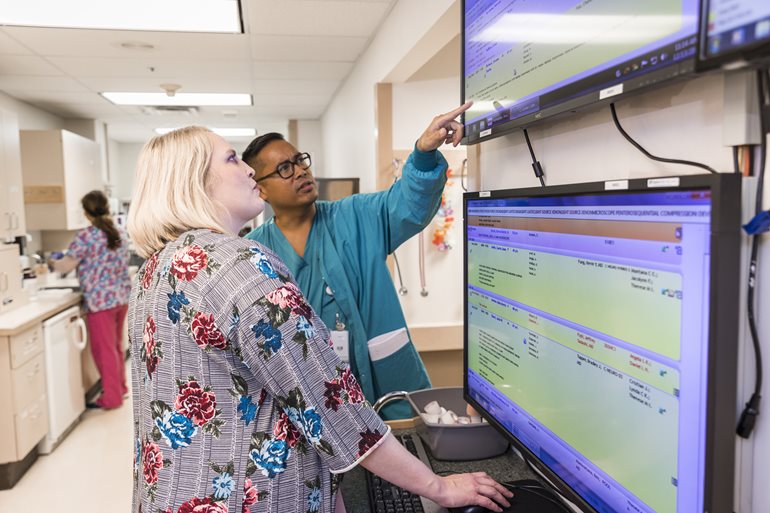
As the American Nurses Association celebrates National Nurses Week, May 6-12, the School of Nursing & Health Studies at the University of Washington Bothell is celebrating the national recognition recently conferred on UW’s nursing programs.
Overall, the UW’s School of Nursing, which encompasses nursing programs on the UW campuses in Seattle, Tacoma and Bothell, ranks fourth among public colleges that offer a Master of Nursing (MN) degree, according to data used by US News & World Report in its 2020 Best Graduate School rankings.
Excellence in education
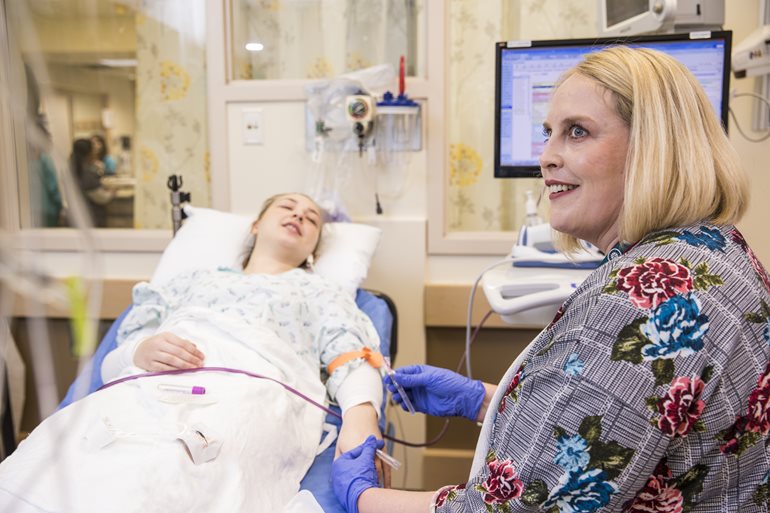
“We are pleased by our high rankings that are consistent with the quality of programs offered at the University of Washington,” said Shari Dworkin, dean of UW Bothell’s School of Nursing & Health Studies. “UW Bothell has designed and executed one of the top MN programs in the nation that produces graduates ready to take the next steps in their careers.”
US News ranked the UW in a tie for No. 12, according to its performance across a set of widely accepted indicators of excellence for the MN. The magazine doesn’t differentiate between public and private colleges, however, so looking at public colleges alone, UW would rank No. 4.
For the first time, this ranking is based on data from all three UW campuses. The School of Nursing in Seattle, which consistently ranks among the best nursing schools, doesn’t offer a MN. That’s why it’s significant the UW submitted data from MN programs at UW Bothell’s School of Nursing & Health Studies and UW Tacoma’s Nursing & Healthcare Leadership program.
“Our graduates provide leadership in health care and advance the health of diverse communities in the Seattle area and beyond,” Dworkin noted. “Our world class faculty, partners, staff and students all helped to make this happen.”
Work-relevant learning
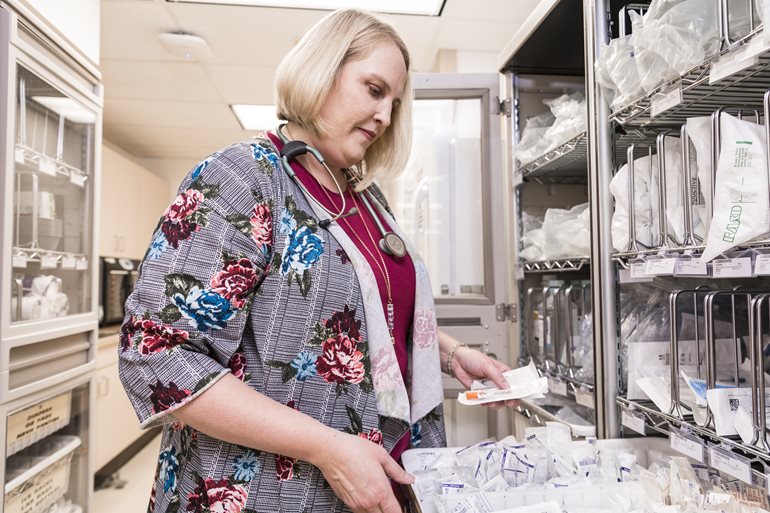
UW Bothell launched its MN program in 1992, giving nurses the work-relevant qualifications they need to move into leadership roles as executives, educators and policy makers. Among other things, they learn how to translate research into best practices.
The administrative-leadership track, added in 2016, now attracts about half the students. Either track can be completed in two or three years — seven or 11 quarters. It generally starts with a cohort of 30 to 35 students who progress together, and 95 percent graduate within three years.
“They form a community of scholarship and support that lasts beyond graduation,” said Celinda Smith, graduate nursing adviser, adding that MN applicants generally are charge nurses or nursing directors in midlevel positions who are seeking the advanced degree to become administrators.
To accommodate the busy schedule of these working students, Smith said, courses are a hybrid of online and in-person classes. Students meet every other Friday on campus, where they can have robust discussions with professors and classmates about research and projects.
Reputation, recommendations
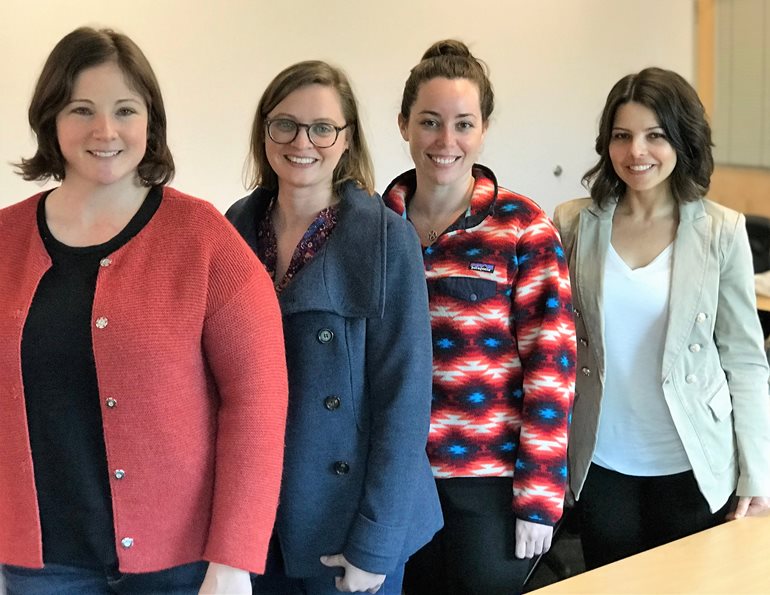
Students say they chose the UW Bothell MN program because of UW’s reputation for excellence in nursing education. In the US News ranking, the UW School of Nursing ranks No. 1 among public schools that offer a Doctor of Nursing Practice degree. Students say they also hear recommendations from colleagues.
“I know a lot of nurses at Swedish have gone through the MN program at UW Bothell, so that is something that they encourage,” said Lauren Smith, who works at Swedish Medical Center’s Cherry Hill campus in Seattle.
Smith is aware of less-expensive online-only options but wanted more.
“I’m more of a visual learner, a more tactile learner, so I wanted to have that structure, that accountability to excel in the program,” said Smith. “What I wanted to get out of the graduate program also involved networking.”
Smith, who plans to graduate in June, says she knows she will have more opportunities for leadership with the master’s degree. “We’re getting a lot of tools and new perspectives to understand health care organizations from more of a systems level.”
Melissa Russell, who works at Seattle Children’s Hospital, has always been interested in nursing leadership. She wanted an in-person program and heard UW Bothell recommended by others.
“I’ve gotten a lot out of this program in terms of networking, learning how hospitals function and all the different types of care delivery models. We’ve had some great professors — extremely knowledgeable in all the different aspects of health care,” said Russell, who also plans to graduates in June.
Taking the lead
Oana Repede, who works at EvergreenHealth hospital in Kirkland, received her Bachelor of Science in Nursing degree from the School of Nursing on the Seattle campus. “I loved the program. I loved the community.”
Now an MN student, Repede wants to move into a management role and apply everything she’s learned as soon as possible.
“I want to be part of leadership and influence how nursing practice is changed and delivered over time,” said Repede, who graduates in June. “I want to be part of that change and lead the change.”
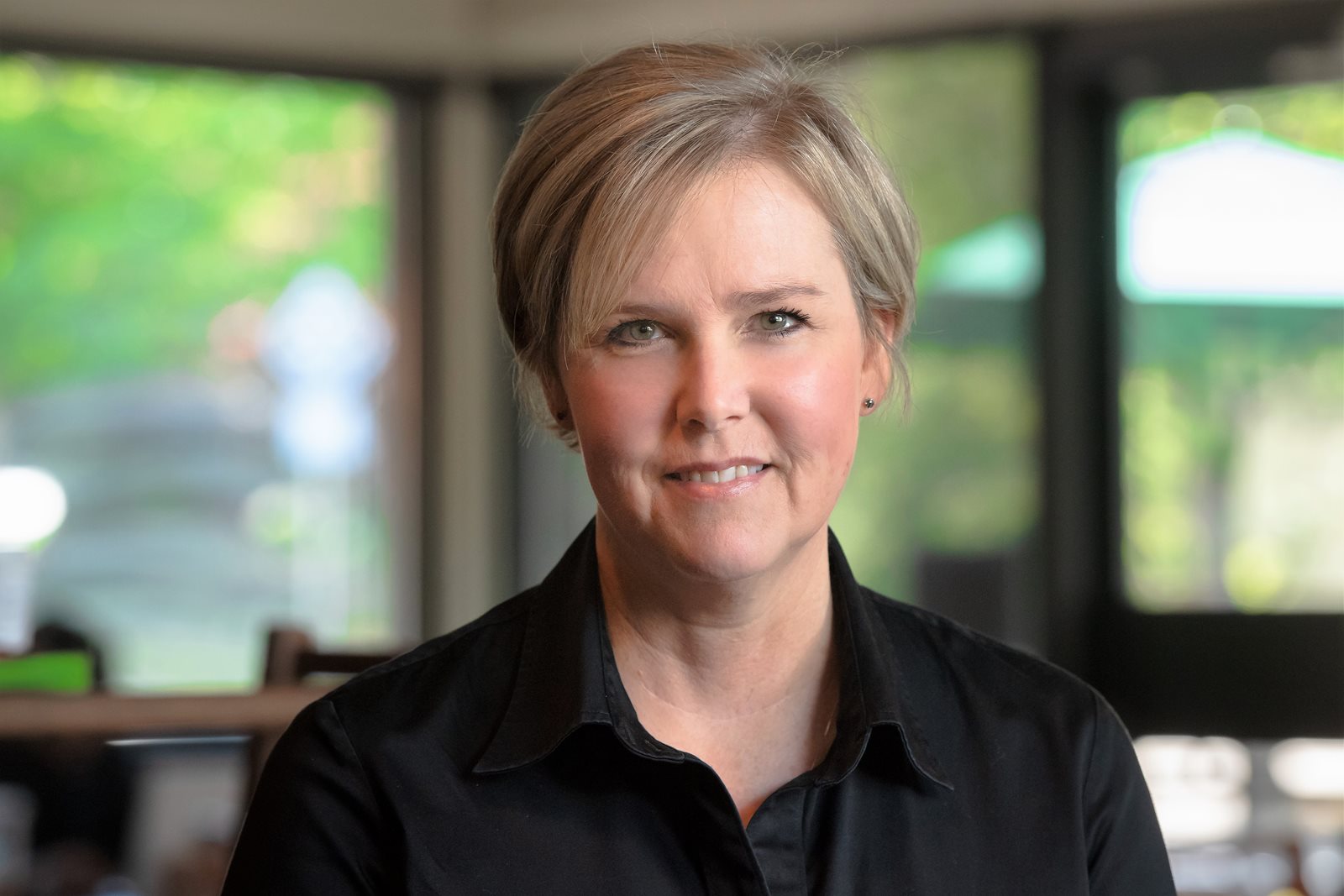
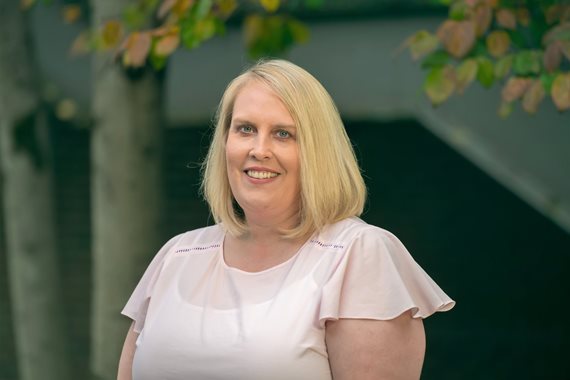
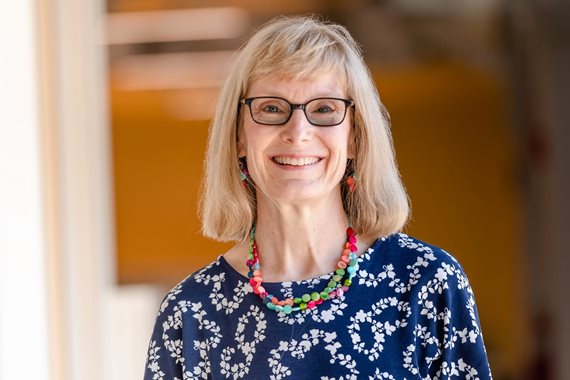
Read more about of MN graduates, from left, Arlyce Coumar, Jennifer Collins and Susan Girard. /Marc Studer photos



